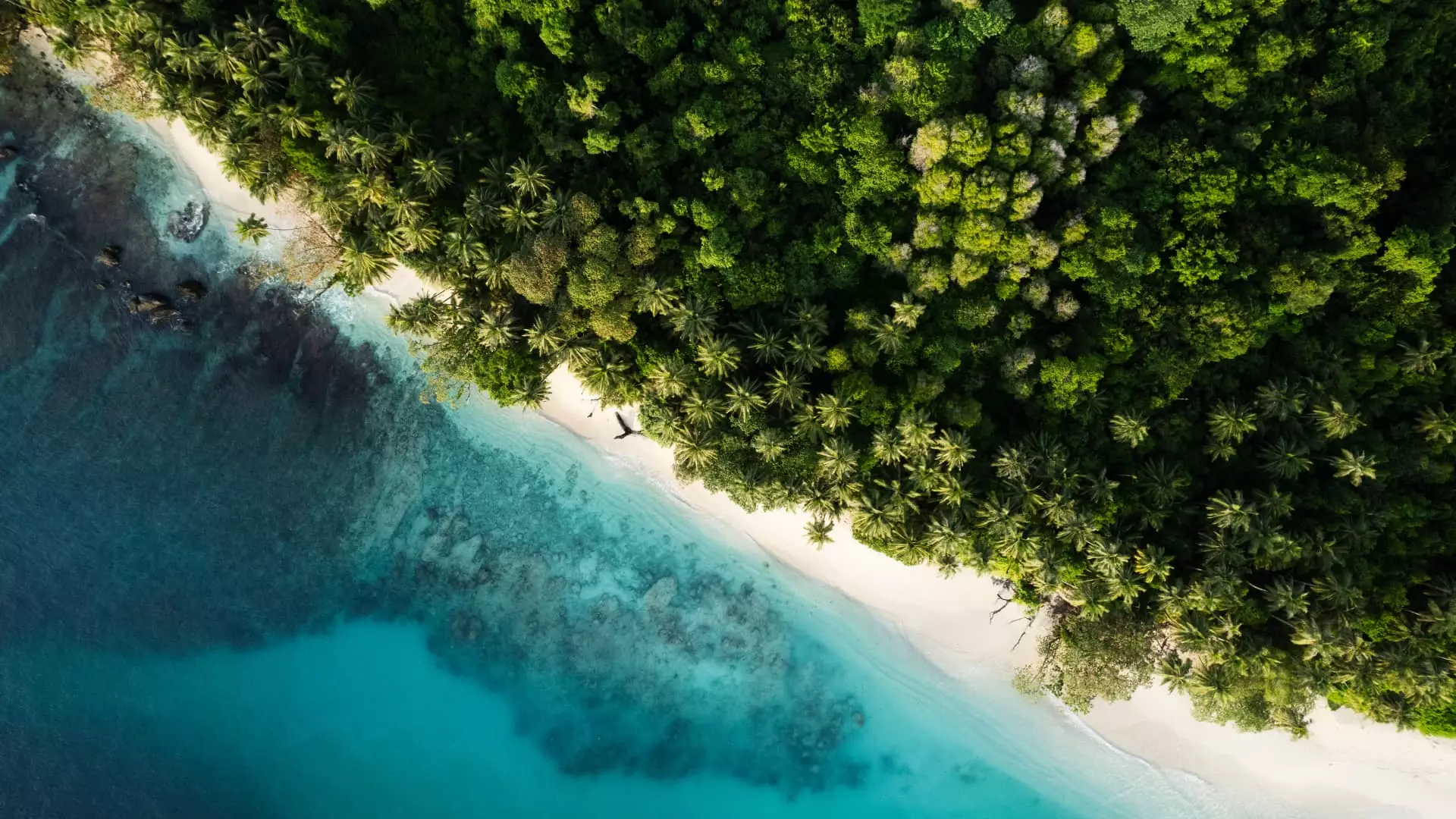The story of Pinang Island stands out as a testament to human ingenuity and the importance of sustainable practices in harmony with nature. Richard Kvech, alongside his close-knit group of friends, embarked on a mission four years ago to transform what was once an isolated and uninhabited land into a thriving eco-retreat that emphasizes conservation and sustainability. Their journey reveals the challenges and triumphs that come with developing an eco-friendly resort in a fragile ecosystem.
When Kvech first encountered Pinang Island, it was a picturesque yet desolate site, displaying remnants of human neglect in the form of a crumbling bungalow that fishermen occasionally used. Envisioning an eco-retreat, Kvech and his friends—Tomas Ouhel, Martin Mrazek, and photographer Stephan Kotas—envisioned creating a space that values the rich natural landscape rather than exploiting it. Their dreams materialized with a 50-year lease agreement with the island’s owners, symbolizing a collaborative effort to revive the land responsibly.
In a remarkable display of resourcefulness, the team utilized locally sourced materials to erect the first structures. They dug wells to ensure a sustainable water supply and installed solar panels for renewable energy. With their initial guest bungalow complete, the group meticulously planned further developments, incorporating staff quarters and communal spaces while ensuring that their ecological footprint remained minimal. The emphasis on sustainability extended to their choice of facilities, with bungalows equipped with organic septic systems and a garden cultivated through permaculture principles.
With the physical changes came a shift in purpose. The eco-retreat was not just about creating accommodations; it was about fostering a connection between guests and nature. By growing a diverse range of fruit and vegetables, raising chickens for fresh eggs, and implementing composting for waste management, Kvech and his team established a retreat that offers a fresh perspective on eco-tourism.
As they opened their doors to paying guests two years ago, the island became a sanctuary for those seeking an immersive nature experience. The resort’s appeal as a destination for yoga, surfing, and introspective retreats began to draw a variety of visitors, each eager to disconnect from fast-paced urban life. Kvech’s vision unfolded as interest grew, confirming the importance of simplicity and natural beauty in today’s travel landscape.
The resort currently caters to a maximum of 12 guests at a time, promoting intimacy and exclusivity—a deliberate choice to preserve the natural beauty and charm of the island. The price, set at $999 per night for eight guests, encapsulates not merely accommodation but an experience that includes comprehensive amenities, activities, and meals designed to create lasting memories in this untouched paradise.
However, the journey was not without its hardships. A critical chapter in the Pinang Island story occurred in August 2023, when a local boat capsized during a violent storm. The accident highlighted both the unpredictability of the sea and the necessity of rigorous safety standards for marine travel. Kvech, expressing deep sympathy for the affected individuals, reassured stakeholders about their commitment to improving maritime safety for the larger island community.
The tragedy prompted the group to re-evaluate their transportation methods. By investing in a fiberglass boat equipped with safety gear and communication devices, they aimed to safeguard their guests and ensure safe passage to the island. These proactive measures emphasized their commitment to caring for both visitors and the broader community, establishing the Fifan Foundation in honor of their missing captain as a major initiative for training and safety.
Kvech remains steadfast in his belief that the island’s allure lies in its intimacy. He envisions a place where travelers can reconnect with nature without the distractions and hustle of overly commercialized tourism. “This isn’t a high-end resort experience; it’s about finding balance and understanding nature,” he stated, pointing toward the significance of eco-tourism as a sanctuary for adventurous souls.
Dividing his time between Pinang Island and his native Czech Republic, Kvech acknowledges the realities behind the idyllic surface of island life. It’s not merely a venture into tranquility; it is a challenging endeavor that requires adapting to both the land and the local culture. The experience has undoubtedly transformed him and his team, solidifying their commitment to preserving Pinang Island as an eco-friendly haven for years to come.
As the world increasingly grapples with environmental concerns, the example set by Kvech and his team on Pinang Island serves as an inspiring model for future developments in eco-tourism, reminding us all of the importance of sustainability, respect for nature, and the human spirit.


Leave a Reply